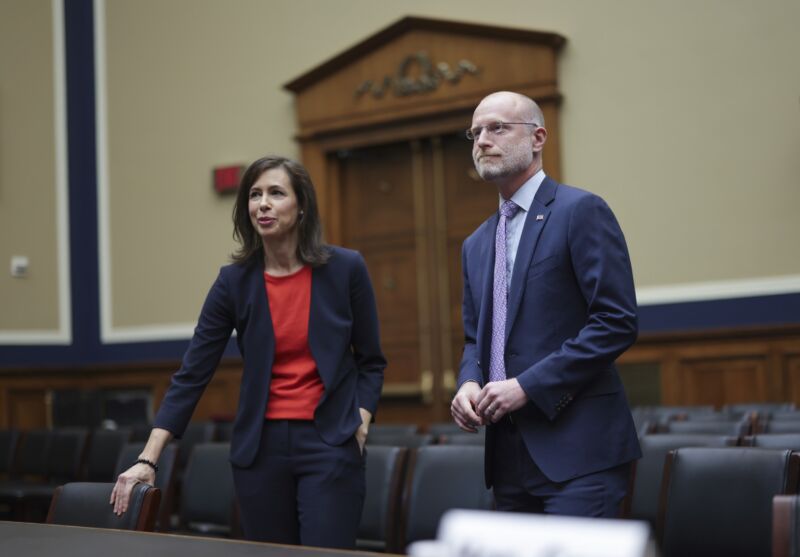
The Federal Communications Commission today voted to move ahead with a plan that would restore net neutrality rules and common-carrier regulation of Internet service providers.
In a 3-2 party-line vote, the FCC approved Chairwoman Jessica Rosenworcel’s Notice of Proposed Rulemaking (NPRM), which seeks public comment on the broadband regulation plan. The comment period will officially open after the proposal is published in the Federal Register, but the docket is already active and can be found here.
The proposal would reclassify broadband as a telecommunications service, a designation that allows the FCC to regulate ISPs under the common-carrier provisions in Title II of the Communications Act. The plan is essentially the same as what the FCC did in 2015 when it used Title II to prohibit fixed and mobile Internet providers from blocking or throttling traffic or giving priority to Web services in exchange for payment.
The Obama-era net neutrality rules were eliminated during Trump’s presidency when then-Chairman Ajit Pai led a repeal that reclassified broadband as an information service, returning it to the less strict regulatory regime of Title I. The current FCC likely would have acted much sooner but there was a 2-2 deadlock until last month when the Senate confirmed Biden nominee Anna Gomez to fill the empty spot.
After the comment period, the FCC is likely to finalize the rulemaking and put the 2015 rules back in place. The broadband industry will likely then sue the FCC in an attempt to nullify the rulemaking.
Chair: Broadband needs “expert agency”
“Today, there is no expert agency ensuring that the Internet is fast, open, and fair… Today, we begin a process to make this right. We propose to reinstate enforceable, bright-line rules to prevent blocking, throttling, and paid prioritization,” Rosenworcel said at the commission meeting.
Title II regulation isn’t just about net neutrality, Rosenworcel said, arguing that the reclassification will give the FCC more authority to protect national security on broadband networks. “When we stripped state-affiliated companies from China of their authority to operate in the United States, that action did not extend to broadband services, thanks to the retreat from Title II. This is a national security loophole that needs to be addressed,” she said.
Without Title II, the FCC has “limited authority to incorporate updated cybersecurity standards into our network policies,” she said. The same is true of protecting privacy on broadband networks, she said.
“The law requires telecommunications providers to protect the confidentiality of the proprietary information of their customers,” Rosenworcel said. “That means that these providers cannot sell your location data, among other sensitive information. Those privacy protections currently extend to voice customers but not broadband subscribers. Does that really make sense? Do we want our broadband providers selling what we do online? Scraping our service for a payday from new artificial intelligence models? Doing any of this without our permission?”
Disputing claims that the FCC is overstepping its authority, Rosenworcel said the “rules are legally sustainable because they track those that were upheld in court in 2016—from front to back.”
https://arstechnica.com/?p=1977192

